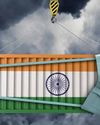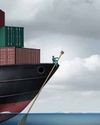The pharmaceutical industry is steadily expanding its sea freight volume owing to lower fares and availability of stricter and more reliable control of temperature. The Port of Antwerp is ideally positioned to leverage on this air to ocean trend.

The world is looking for cheaper drugs and India has proved it has the capability to deliver. The export of generic medicines is one of India’s strengths and in the last two years India has stepped far ahead for China. To most continents and regions where generic consumables are higher such as Latin America, the US, the Middle East and Northern African (MENA) region, Indian exports are significantly higher than its Asian counterpart’s.
In fact, India leads China in exports to the EU as well. In 2016, India’s exports were worth $1.56 billion as against China’s $1.36 billion. If India has to remain ahead of China even in the American and South East Asian and Australian regions, it would require more than the manufacturers’ effort to make the drugs available to patients across the globe. A majority of the bulk drug and active pharmaceutical industry that functions out of Hyderabad reckons that logistics - both at the port and inland play a crucial role in cutting raw material supply time and export time.
While most ports such as Chennai, Jawaharlal Nehru Port Trust and Visakhapatnam Port ship exports out of India, Indian pharmaceutical firms ask for better value-added services to ensure their cargo is ready for consumption to destinations where the vials and tablets are shipped to.
Diese Geschichte stammt aus der September 2017-Ausgabe von Maritime Gateway.
Starten Sie Ihre 7-tägige kostenlose Testversion von Magzter GOLD, um auf Tausende kuratierte Premium-Storys sowie über 8.000 Zeitschriften und Zeitungen zuzugreifen.
Bereits Abonnent ? Anmelden
Diese Geschichte stammt aus der September 2017-Ausgabe von Maritime Gateway.
Starten Sie Ihre 7-tägige kostenlose Testversion von Magzter GOLD, um auf Tausende kuratierte Premium-Storys sowie über 8.000 Zeitschriften und Zeitungen zuzugreifen.
Bereits Abonnent? Anmelden

Impact Of Covid-19 On Shipping And Logistics
Industry stalwarts discuss threadbare the prevailing logistics and supply chain scenario and issues in clearing cargo during the COVID-19 lockdown

Digital Platforms Defy Lockdown
Digital trading modules such as eNAM are enabling farmers to move their produce from farm to market even during the lockdown

GARMENT TRADE TRAMPLED
As retailers face a shutdown in US and Europe, the cascading affect has caused mass cancellation of orders in Bangladesh

TRADE RESUMES WITH CHINA
While India has allowed uninterrupted movement of imports into Nepal even during lockdown, China is reopening its borders as it emerges from the pandemic
LESS HUMAN INTENSIVE, MORE DATA DRIVEN
AI provides transformational opportunity for logistics industry by improving customer experience, operational efficiency, faster turnaround time and lower cost while ensuring security and transparency. Macro environment requires industry to transform to be less human intensive, agile and data driven, all of which can be accelerated by AI adoption, shares Gangadhar Gude, Founder & CEO, atai.ai

SHAKEN AND STIRRED
The COVID-19 pandemic has partially paralysed the logistics and supply chain, but the industry is still deterred to ensure supply of essentials continues

TRADE STUCK, ECONOMY SLOWS DOWN
Sri Lankan economy slows down as trade deficit widens and supply chain disrupts amidst lockdown

LENDING INTELLIGENCE TO SUPPLY CHAIN
If you’re shipping millions of dollars’ worth of pharmaceuticals, high-end electronics, expensive seafood, or precious metals, what would you be willing to pay for the ability to ‘ask’ your shipment where it is right now and whether it’s ok? What would you pay for a freight smart enough to raise an alarm before it spoils? Artificial Intelligence enables that and much more…

CONTAINER LINES SIGNAL ‘SOS'
As the per-unit cost of operations increases many lines are forced to blank sailings which has hit their bottom line real hard. The Government and Terminal Operators therefore need to actively consider reduction in Vessel Related Costs

IMO 2020 And The Covid-19 Curse
The COVID-19 outbreak has shaken and stirred the already volatile bunker market. While the refiners adjust their capacities and shipping lines choose their path to compliance, the market dynamics are yet to reach an equilibrium